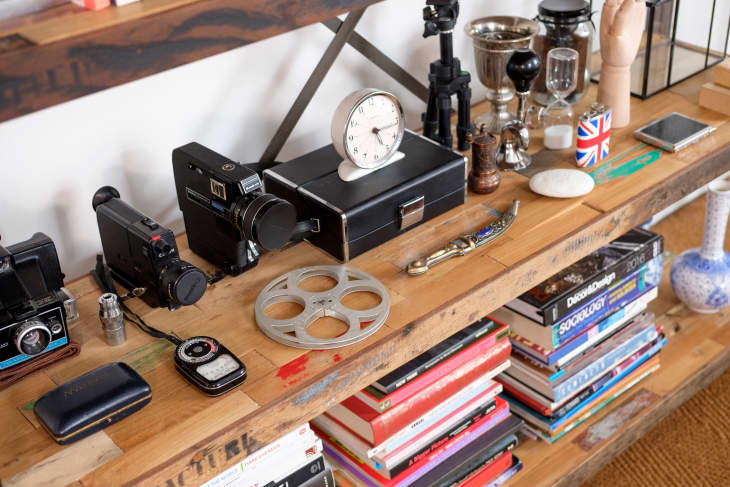Good News! There Are 2 Compelling Reasons Why You Should Wait to Declutter
Decluttering efforts tend to come in fits and spurts. There’s no denying that it feels awesome to go on apurging rampageand get bags of stuff out of our homes. Afterward, our physical and even mental spacesusuallyfeel cleaner and clearer. But it turns out there are two reasons to sometimesput offdecluttering (and not just in the way of going about the taskmore methodically).
1. You Should Wait to Declutter Sentimental Items
When it comes to items that hold a lot of sentimental significance, it’s often too hard to let go of them while the sentiments are fresh or even raw, as the case may be. For instance, sorting through items after a loved one passes, or only keeping the most favorite mementos from your child’s first year.
Waiting a bit, until the poignancy of memory has mellowed, does not necessarily mean that the items will have less sentimentality attached to them. But with a little bit of distance, you may be able to ferret out the few things that move your heart the most and keep only these.
Some other similar types of items that could fall into this category include vacation keepsakes, photographs from a special event or even daily life, old letters or notes, cards, and schoolwork (yours or your children’s).
2. Wait so You Can See a Whole Collection
The other benefit of putting a hold on decluttering certain types of items is that when you wait, you’re able to evaluate your entire collection—in order to see and save the “best of.” This logic applies back to the sentimental, too: by keeping the best examples of a larger collection, you can pare down your sentimental items without sacrificing all of your favorite physical memory triggers.
Looking at an entire collection or grouping of similar types of items can take many forms, often quite personal and sometimes spanning many years. My favorite example of this technique, however, is one that I employ every school year.
When my children bring home school papers—and there are so, so many—I do a first-round sort on the spot, recycling what I know we don’t want or need right away. The rest I put in a magazine box. Each child gets one per school year. Once school is out for the summer, I sort through the entire box, recycling some, photographing and then tossing some, and keeping very few physically.
This way I don’t end up with six sample spelling tests from second grade or nine renditions from the robot-drawing phase; I have a meaningful sampling, the cream skimmed from the top, all the more precious and manageable for what I saved being a smaller collection.
The Smart Way to Wait to Declutter
While the benefits of waiting to sort through certain types of possessions are inspiring, it’s important to keep a few things in mind:
Space is a luxury
Whether you’re gaining the objectivity that comes through time or amassing a small collection so that the “best of” comes to light, we realize that both require the luxury of storage space. This isn’t always feasible. Never save items to sort through later if doing so encroaches on your daily living space. In addition, limit the amount of space you will allow these items to take up, for instance, a magazine file in the example above, or one large box or bin (clearly labeled).
Set a deadline for decluttering
Next, keep in mind that it’s easy to fall into the trap of hanging on to things indefinitely when you don’t deal with them right away. To avoid boxes that live in your garage for decades, set some time parameters similar to the space parameters. As mentioned, I sort through my kids’ school papers at the end of each school year. Giving yourself a deadline allows time to do its work but prevents the pitfall of keeping too much stuff because it’s too hard to deal with.
With clearly set and strictly followed guidelines coupled with a strategic mindset, deliberately waiting to declutter certain kinds of items will sometimes enable you to ultimately keep less—a less that will be so much more.

